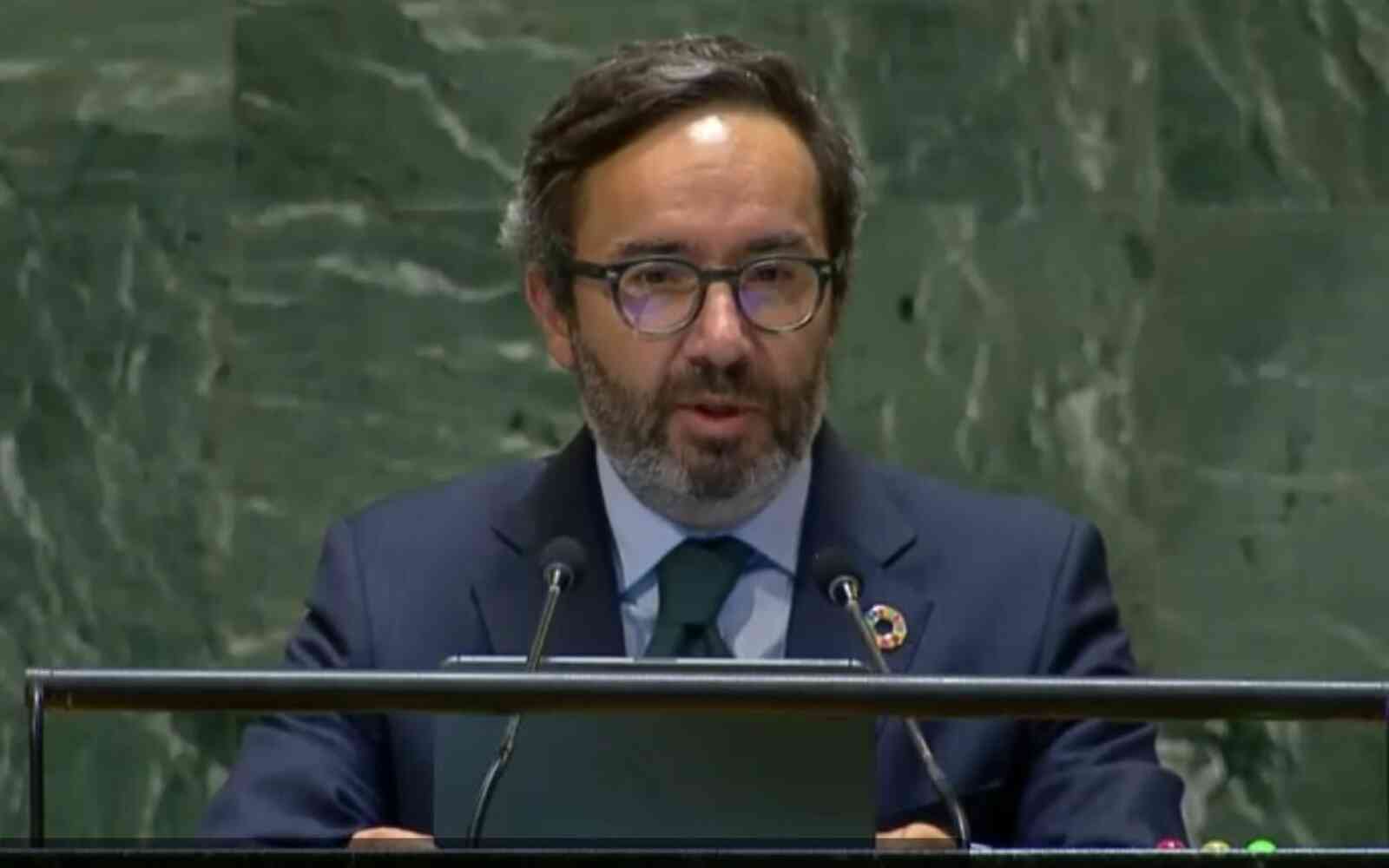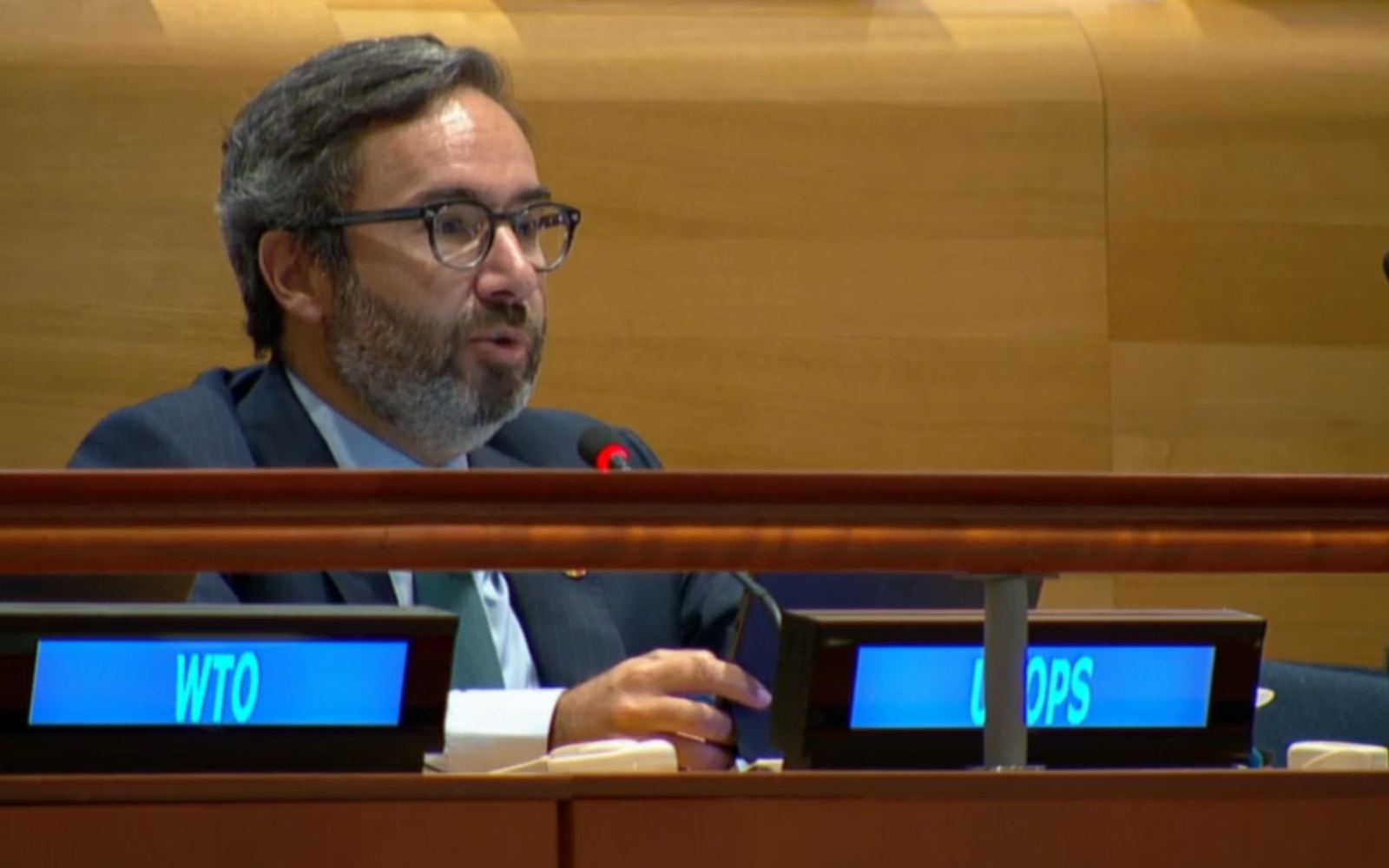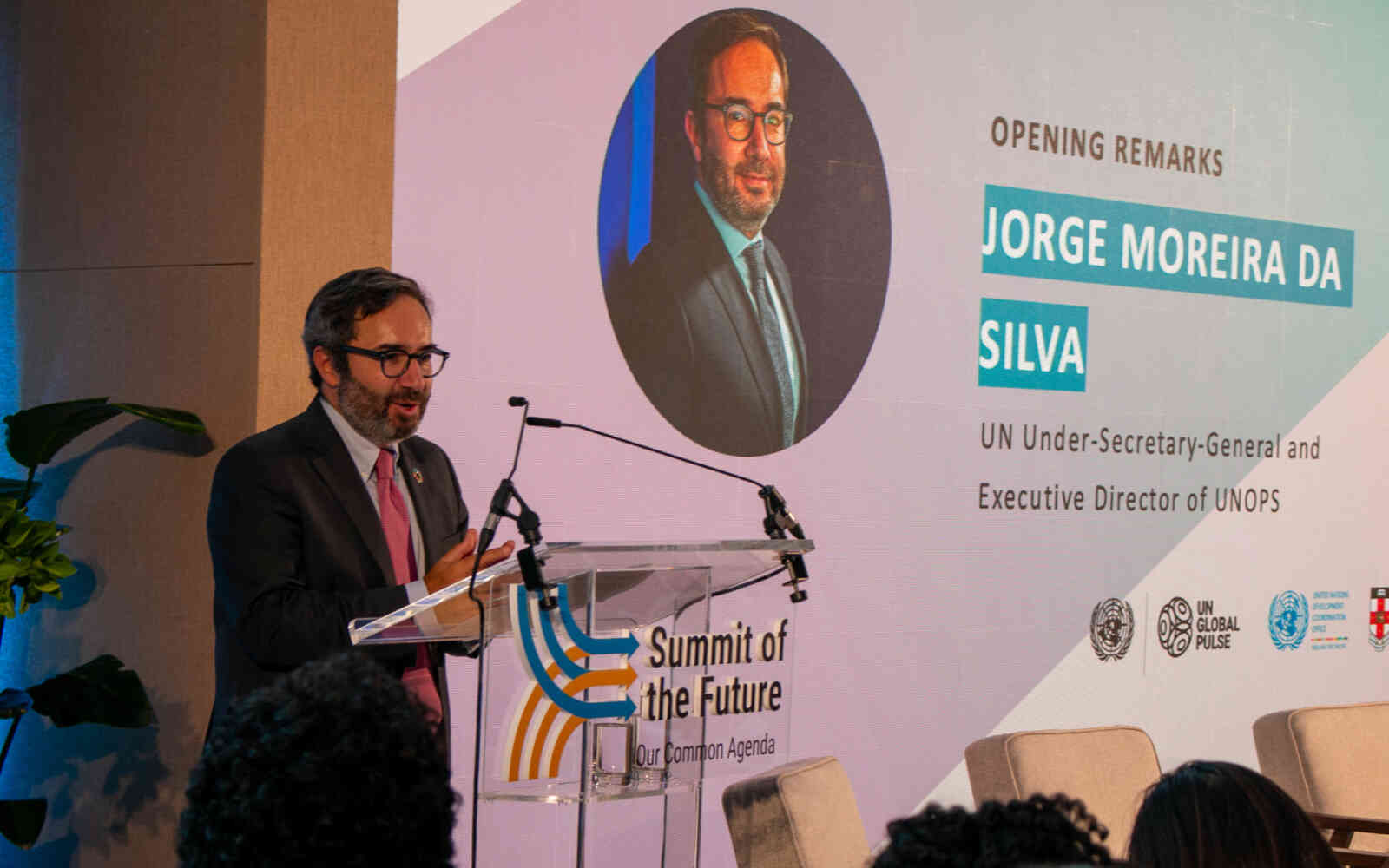The United Nations Office for Project Services (UNOPS)
Remarks by UNOPS Executive Director at Summit of the Future Action Days event on Assistive Technology
Opening remarks by Jorge Moreira da Silva, UN Under-Secretary-General and UNOPS Executive Director to the Summit of the Future Action Days event: 'Multi-stakeholder partnerships in Assistive Technology and education: Transforming education and employment opportunities for children and young people with disabilities' - 20 September 2024.
[Check against delivery]
Good afternoon,
It is a pleasure to be here, at this important event, today.
We have all gathered here, at the Summit of the Future, because we believe it represents a clear opportunity for change. To make our world more inclusive. To deliver on the promises to create a more peaceful, prosperous, and fairer future for all.
Delighted to support my colleagues at @_ATscale today.
— Jorge Moreira da Silva (@UNOPS_Chief) September 20, 2024
Access to assistive technology is essential for unlocking potential and ensuring equality.
I was particularly impressed by the use of AT at this event, ensuring greater access to all audiences. https://t.co/lhAqGjy715 pic.twitter.com/vofprpiLOo
Transforming education and employment opportunities for children and young people with disabilities is at the heart of that promise.
It is a question of inclusion. It is a question of fundamental human rights. And it is crucial for achieving the Sustainable Development Goals (SDGs).
And beyond a moral responsibility, it is also a matter of economic prudence.
Giving everyone an opportunity to realize their full potential makes economic sense. If children have to miss out on education, they are not only deprived of the chance to learn, but also a chance to build a better future for themselves and their families.
When it comes to education, access to assistive technology is a true game changer.
Whether it is a wheelchair or a hearing aid, an artificial limb, or a pair of eyeglasses, we know that access to assistive technology can make all the difference to a child’s education.
It is crucial to people’s ability to work, and to contribute to their communities.
This is the reality of life for the 2.5 billion people globally who need to use at least one type of assistive technology. By 2025, this figure is expected to rise to 3.5 billion. And yet, despite this importance, access to assistive technology is marked by shocking inequity.
Around this room, you are familiar with the scale of this challenge globally. Many of you have personal experience of it.
Yet the figures bear repeating.
In low-income countries only 10% of people have the assistive technology they need, in stark contrast to the 90% of people in need in high-income countries who do. In fact, 900 million people living in low- and middle-income countries cannot access the assistive technology they need.
Unfortunately, as we know full well, there is a strong gendered aspect to this too.
Girls and women with disabilities face systematic marginalization - and are the most excluded group from educational settings, and the lack of assistive technology has much to do with this.
So it is urgent to do everything within our power to improve access to assistive technology, so we can build a world where everyone, including every child and young person, can thrive and reach their full potential.
We need a holistic approach that integrates technology into inclusive education systems, to ensure that assistive devices are not just tools, but true enablers of learning.
But access to technology is not enough. We must also invest in training and infrastructure. So that teachers, parents, and communities are equipped with the knowledge and resources to support children with disabilities.
UNOPS is proud to have hosted ATscale, the Global Partnership for Assistive Technology since September 2021.
In that time, the team has grown, and the partnership has made significant efforts to deliver on their goal of ensuring that 500 million more people globally can access life-changing assistive technology by 2030.
The partnership has also inspired positive change across UNOPS, supporting efforts to improve our disability inclusion processes.
****
Colleagues,
Investing in inclusion pays. Investing in the future of children and young people pays.
These are not just crucial for economic growth, but also key to peace and sustainability.
And as we know, access to assistive technology opens doors that had been previously shut.
So as we look to the future, I urge all of our partners, from governments and development partners, to the private sector and civil society, to support efforts to make access to assistive technology a global priority.
So we can transform lives, and build a more inclusive and sustainable world for all.












